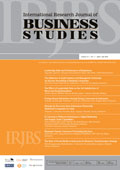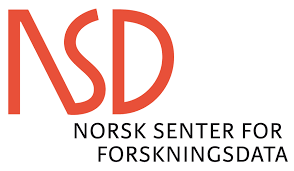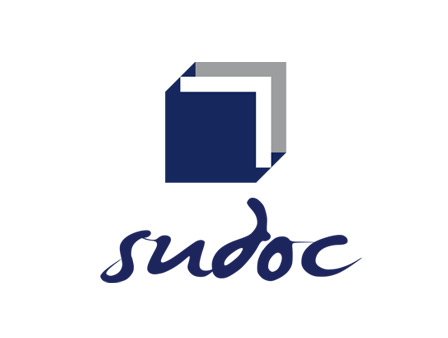Article Metrics |
|
|
The Influence of Innovation and Entrepreneurial Self-Efficacy to Digital Startup Success
Abstract
Establishing and developing a startup business is not easy. Startup success depend on various aspects, such as financial,business model, and learning organizations. Personalities factor of founders have a contribution in business development, especially entrepreneurial self-efficacy (ESE) and innovation. But, in Indonesia, there is still no psychological study who see the contribution of those factors on business success in digital startup. This study aimed to understand how both factors influence startup digital. The sample is 64 founders. The research instrument is ESE, KAI, and Business Success questionnaire (Kirton in Riyanti, 2003; Chen et al, 1998; Kaplan & Norton, 2006). Multiple-regression analyses reveal ESE and innovation contributes 20.8% to business success. ESE regression coefficient is 0.200 (P <0.05) and innovation 0.026 (p> 0.05). This means, ESE has significant positive effect, while innovation has a positive relationship but insignificant. Interventions in the form of booklets that inform how to increase ESE. The booklet is already conducted trials on five founders.
Keyword: technopreneurship, entrepreneurial self-efficacy (ESE), innovation, business success, digital startup
Full Text:
References
Arjanti, R. A. & Mosal, R. L. 2012. Startup Indonesia: Inspirasi dan pelajaran dari para pendiri bisnis digital. Kompas Penerbit Buku, Jakarta.
Bandura, A. 2010. Bandura's instrument teacher self-efficacy scale. Sage Publisher, New York.
Barbosa, S.D., Gerhardt, M.G. & Kickul, J.R. 2007. The role of cognitive style and risk preference on entrepreneurial selfefficacy and entrepreneurial intentions. Journal of Leadership and Organizational Studies. 13(4): 87-104.
Batubara & Tamaria, A. 2016. Pengaruh Efikasi Diri dan Kompetensi Kewirausahaan terhadap Minat Berusaha pada Siswa/I SMK Negeri 10 Medan. Skripsi Sarjana, tidak diterbitkan. Universitas Sumatra Utara, Medan.
Brandstatter, H. 2010. Personality Aspects of Entrepreneurship: A look at five meta-analysis. Journal of Personality and Individual Differences. 10(2): 1-9
Britania, B. & Anggono, A. H. 2014. Analyzing the Factors Affecting Business Performance of Startup Companies in Digital Creative Industry in Indonesia. Journal of Business Strategy and Social Sciences. 1: 566-576
Carlson, M. & Usher, N. 2015. News Startups as Agents of Innovation. Digital Journalism. 4(5): 563-581.
Chen, C. C., Greene, P.G., & Crick, A. 1998. Does entrepreneural self-efficacy distinguish entrepreneurs from managers. Journal of Business Venturing. 13: 295-316.
Crocker, L & Algina, J. 1986. Introduction to Classical and Modern Test Theory. Wadsworth Group, USA.
Drnovsek, M., Wincent, J., & Cardon, M. S. 2010. Entrepreneurial Self-Efficacy and Businness Startup: Deeloping a multi-dimensional definition. International Journal of Entrepreneurial Behaviour & Research. 16(4): 329-348.
Herath, H. M. A. & Mahmood, R. 2014. Dimensions of Entrepreneurial Self-Efficicacy and Firm Performance. Global Journal of Management and Bussiness Research. 14(4): 22-30.
Inggarwati, K. & Kaudin, A. 2010. Peranan Faktor-faktor Individual dalam Mengembangkan Usaha: Studi kuantitatif pada wirausaha kecil di Salatiga. Jurnal Manajemen Bisnis. 3(2): 185-202.
Jones, C. & Shao, B. 2011. The Net Generation and Digital Natives. A Literature Review Commissioned by the Higher Education Academy. Open University Review in United Kingdom. 1 56.
Kaplan, R. S. & Norton, D. P. 1996. The Balance Scorecard: Translating strategy into action. Harvard Business School Press, Amerika Serikat.
Langen, F. & Groenewegen, G. 2012. Critical Success Factors of the Survival of Start-Ups with a Radical Innovation. Journal of Applied Economics and Business Research. 2(3): 155-171.
Leutner, F., Ahmetoglu, G., Akhtar, R., & Premuzic, T. C. 2014. The Relationship Between The Entrepreneurial Personality and The Big Five Personality Traits. Journal of Personality and Individual Differences. 58 63.
Nann, S., Krauss, J., Schober, M., Gloor, P. A., Fishbach, K., & Fuhres, H. 2009. The Power of Alumni Networks - Success of Startup Companies Correlates With Online Social Network Structure of Its Founders. Journal MIT Sloan Research Paper. 1: 1-28.
Rauch, A. & Frese, M. 2007. Lets put the person back into entrepreneurship research: A meta-analysis on the relationship between business owners personality traits, business creation, and success. European Journal of Work and Organizational Psychology. 16(4): 353 385.
Riyanti, B. P. D. 2003 Kewirausahaan dari Sudut Pandang Psikologi Kepribadian. Grasindo, Jakarta.
R., S., E., & T. Pelaku Usaha Bisnis Startup Digital Aplikasi. Interview on 16-17 November 2016.
Seibert, S. E. & Zhao, H. 2006. The Big Five Personality Dimensions and Entrepreneurial Status: A meta-analytical review. Journal of Applied Psychology. 91(2): 259-271.
Senge, P. M. 2010. The Fifth Discpline: The art and practice of the learning organization. Doubleday, New York.
Sivalingan, K. M. & George, N. R. 2011. Next Generation Internet: Architectures and protocols. Cambridge University Press, New York.
Song, M., Podoynitsyna, K., Hand, V. D. B., Halman, J. I. M. 2008. Success Factors in New Ventures: A meta-analysis. The Journal of Product Innovation Management. 25(1): 7-27.
Spector. P. E. 2012. Industrial and organizational psychology: Research and practice. (6th Ed.). John Wiley & Sons, Singapore.
Startup Genome Report. 2012. A New Framework for Understanding Why Startup Succeed. Literature Report in Bekeley and Standford. 1 6
Sugiyono. 2010. Metode Penelitian Kuantitatif, Kualitatif, dan R&B. Alvabeta, Bandung.
York, J. L. & Danes, J. E. 2014. Customer Development, Innovation, And Decision-Making Biases In The Lean Startup. Journal of Small Business Strategy. 24(2): 21-39.
Tagraf, H. & Akin, E. 2009. Relations Between the Charateristics of Entrepreneurship and The Bussiness Owner: An analysis of SMES in Konya. Serbian Journal of Management. 4(2): 239-257.
Zaheer, H. 2015. How Do Innovative Digital Start-Ups Achieve Success? Perspectives Of Australian Founders. Disertasi. Universitas Macquarie, Australia.
Zuliarni, S. 2014. Analisis Kreativitas dan Inovatif Pengusaha Industri Kreatif Sub Sektor Kerajinan di Pekanbaru. Jurnal Aplikasi Bisnis. 4(2): 110-123.
Copyright (c) 2017 Agnes Dessyana, Benedicta Prihatin Dwi Riyanti
International Research Journal of Business Studies has been covered by the following services: | ||||||||||||||||||||||||
|




















